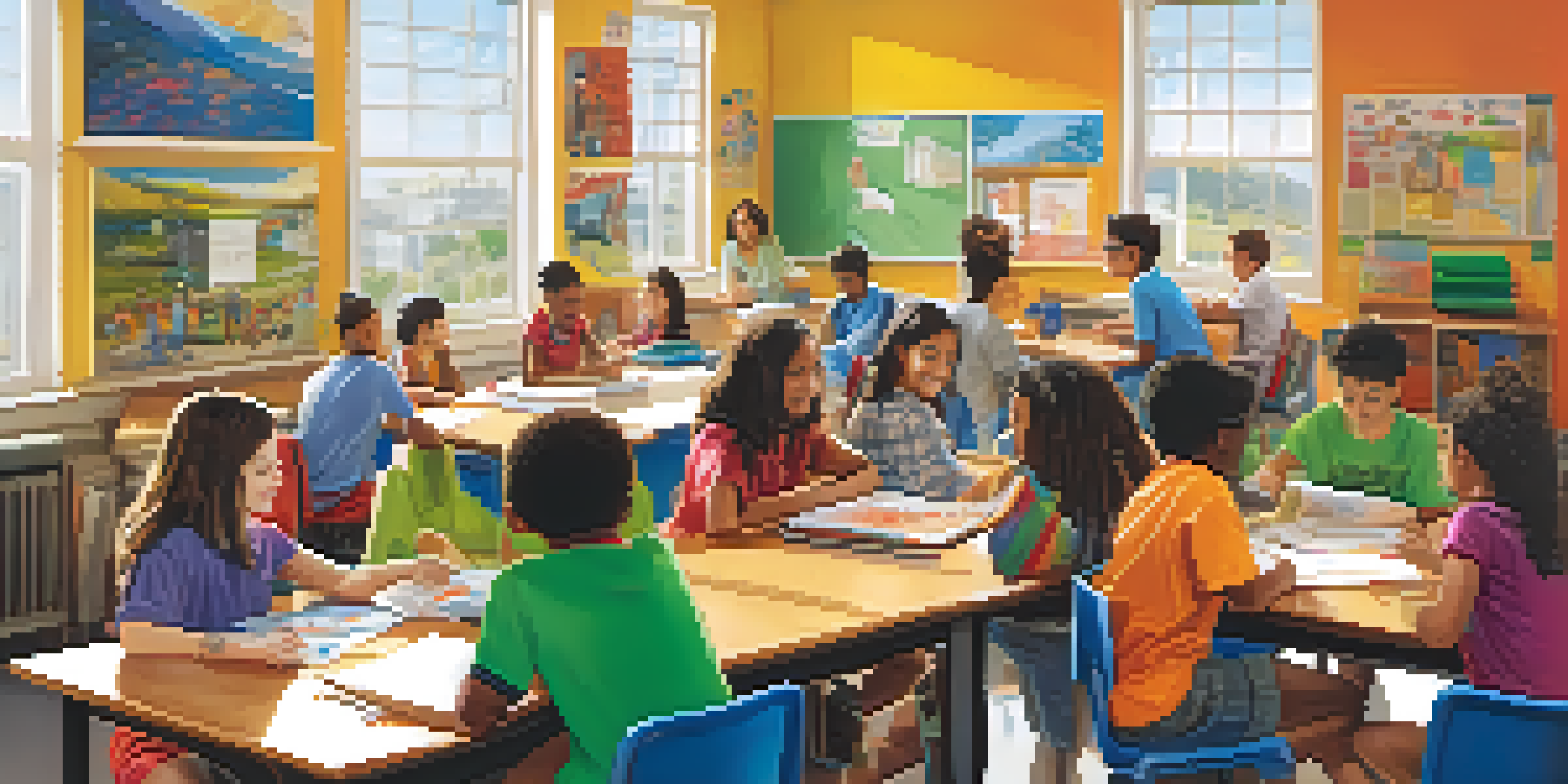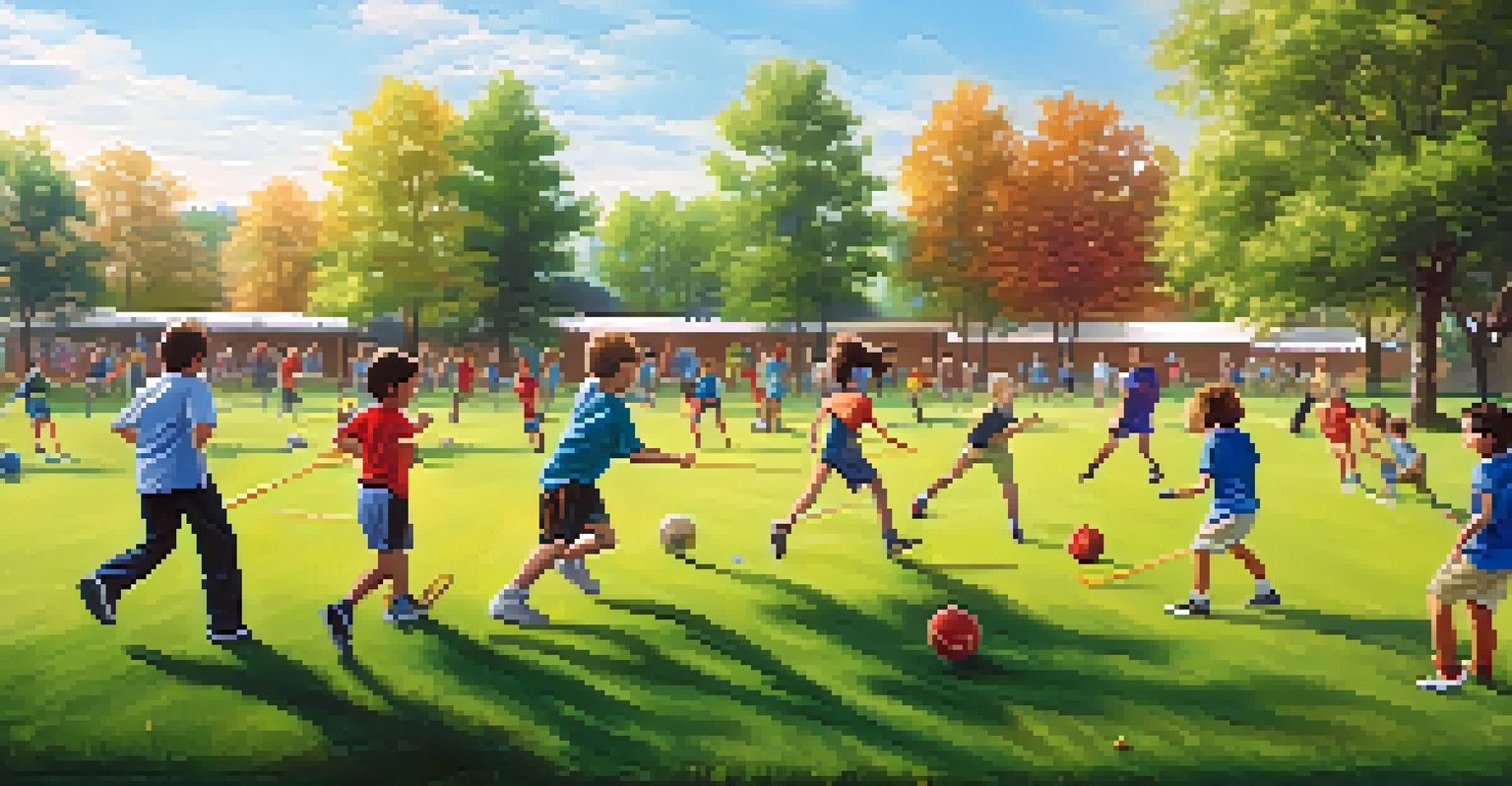Lifelong Learning: Fostering Continuous Development in Students

Understanding Lifelong Learning and Its Importance
Lifelong learning is the ongoing, voluntary, and self-motivated pursuit of knowledge. It's not just for adults; students can greatly benefit from adopting this mindset early on. By fostering curiosity and a love for learning, we prepare students to adapt to an ever-changing world.
Learning never exhausts the mind.
In a rapidly evolving job market, skills can become outdated quickly. Lifelong learning allows students to keep pace with new technologies and trends, ensuring they remain competitive. This adaptability is essential not just for career success, but for personal growth and fulfillment as well.
Moreover, lifelong learning encourages critical thinking and problem-solving skills. These abilities are vital for navigating life's challenges, both in and out of the classroom. By instilling these values, educators can empower students to approach obstacles with confidence.
Creating a Supportive Learning Environment
To foster lifelong learning, it's crucial to create an environment that encourages exploration and inquiry. Classrooms should feel safe and inviting, where students feel comfortable asking questions. This supportive atmosphere cultivates a sense of belonging, which is essential for effective learning.

In addition to physical space, emotional support plays a key role. Teachers can nurture student curiosity by showing genuine interest in their ideas and passions. When students know their voices matter, they are more likely to engage actively in their learning journey.
Lifelong Learning Enhances Adaptability
Embracing lifelong learning equips students with the skills needed to adapt to a rapidly changing job market and personal challenges.
Furthermore, incorporating collaborative projects can enhance this environment. Group work not only allows students to learn from one another but also teaches valuable teamwork skills. By working together, students can develop a deeper understanding of concepts while building lasting relationships.
Encouraging Self-Directed Learning
Self-directed learning is a cornerstone of lifelong education. It empowers students to take charge of their learning by setting goals and pursuing interests independently. This autonomy fosters motivation, as students discover what truly excites them.
The beautiful thing about learning is that no one can take it away from you.
To support self-directed learning, educators can provide tools and resources that facilitate exploration. This might include access to online courses, research materials, or mentorship opportunities. By offering choices, students can tailor their learning experiences to align with their individual interests.
Moreover, teaching students how to reflect on their learning is vital. Encouraging them to assess their progress and identify areas for improvement cultivates a growth mindset. This self-awareness is key to becoming lifelong learners who embrace challenges.
Integrating Technology in Lifelong Learning
In today's digital age, technology plays a significant role in lifelong learning. Online platforms and resources provide students with endless opportunities to explore new subjects at their own pace. This accessibility breaks down barriers to education and allows for personalized learning experiences.
Using technology also encourages collaboration across geographical boundaries. Students can connect with peers and experts worldwide, broadening their perspectives and understanding. These interactions foster a global community of learners, enriching their educational journey.
Supportive Environments Foster Growth
Creating a safe, collaborative learning environment encourages students to explore their interests and develop essential skills.
However, it's essential to balance technology use with traditional learning methods. While digital tools are invaluable, face-to-face interactions and hands-on experiences remain crucial. Combining both approaches creates a dynamic learning environment that caters to diverse needs.
Promoting Lifelong Learning Through Extracurricular Activities
Extracurricular activities are a fantastic way to promote lifelong learning outside the classroom. Whether it's joining a club, participating in sports, or volunteering, these experiences allow students to explore their passions. They provide opportunities for personal development and skill-building in a fun, engaging way.
Through these activities, students learn valuable life skills such as leadership, time management, and teamwork. These skills are transferable and can enhance their academic performance and future career prospects. Plus, the friendships formed during these activities can create a strong support network.
Encouraging students to pursue extracurricular interests can also spark new passions. Sometimes, a hobby can lead to unexpected career paths. By supporting their exploration, we help students discover their strengths and interests, fueling their lifelong learning journey.
The Role of Educators in Lifelong Learning
Educators play a vital role in fostering a culture of lifelong learning among students. By modeling a love for learning themselves, teachers can inspire students to adopt similar values. Sharing their experiences and demonstrating curiosity can make a significant impact.
Moreover, educators should encourage students to ask questions and explore topics beyond the curriculum. Providing opportunities for independent research or projects can ignite a passion for discovery. This can transform the classroom into a space where learning is not confined to textbooks.
Technology Amplifies Learning Opportunities
Integrating technology in education provides students with diverse resources and global connections, enriching their lifelong learning experiences.
Additionally, professional development for educators is essential. By staying current with pedagogical strategies and educational technologies, teachers can better support their students. Lifelong learning should be a shared journey between educators and students.
Assessing Lifelong Learning Outcomes
Assessing lifelong learning outcomes can be challenging, but it's crucial for understanding student growth. Traditional assessments may not fully capture the skills and knowledge gained through continuous learning experiences. Therefore, a more holistic approach is needed.
Incorporating reflective assessments, such as journals or portfolios, allows students to showcase their learning journeys. This method encourages self-reflection and critical thinking, enabling educators to gain insight into student progress. It also highlights the importance of the learning process, not just the end result.

Furthermore, peer assessments and collaborative projects can foster a sense of community and shared responsibility. When students evaluate each other’s work, they develop a deeper understanding of the subject matter. This collaborative assessment model aligns with the principles of lifelong learning.